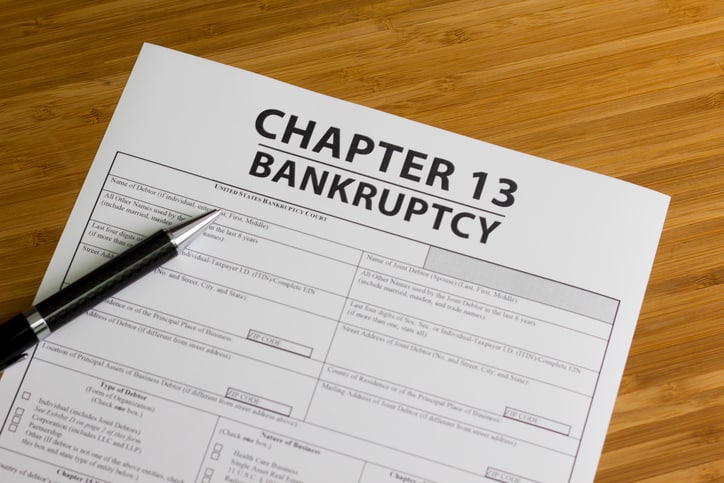What Happens If I Lose My Job During Chapter 13?

A bankruptcy discharge doesn’t always happen right away. With Chapter 13 bankruptcy, filers must successfully complete a three-to five-year repayment plan. During this time, you’ll have to live on a strict budget to repay some of your re-organized debt. At the end of the repayment plan, your remaining debt is discharged. The repayment plan assumes that you’ll remain gainfully employed throughout it. If you lose your job, call your attorney right away.
File a request to modify the repayment plan.
Job loss is a significant event that can form the basis for a modification request. Your bankruptcy lawyer can file a request to ask the bankruptcy court to adjust your payments. You can request the modification before or after the court confirms your case. If you request the modification prior to confirmation, then you can file an amended plan. If your case has already been confirmed, your lawyer must file a motion. You’ll need to provide proof of the job loss.
Request a hardship discharge.
A hardship discharge is a premature discharge of certain debts in the event you cannot make any payments, even modified payments, during your repayment plan. Bankruptcy judges don’t grant hardship discharges as readily as repayment plan modifications. In order to qualify, you’ll have to show that there is a permanent change in your circumstances beyond temporary job loss. For instance, let’s assume that you sustained permanent disabilities in a car accident that make you unable to work at all. This would be considered a permanent change in circumstances.
Convert to a Chapter 7 bankruptcy.
Another possibility is to convert your Chapter 13 bankruptcy to a Chapter 7. You may have filed for Chapter 13 initially because you earned too much income to pass the means test. But now that you’ve lost your job, you might pass the means test. Your attorney can determine whether you’re eligible to convert your bankruptcy case.
The bankruptcy attorneys at Cutler & Associates, Ltd. are here for you, no matter which issues arise during your repayment plan. We can effectively advocate on your behalf if you need to restructure your repayment plan or request a hardship discharge. Call our law firm in Aurora or Schaumburg at (630) 343-0324.


